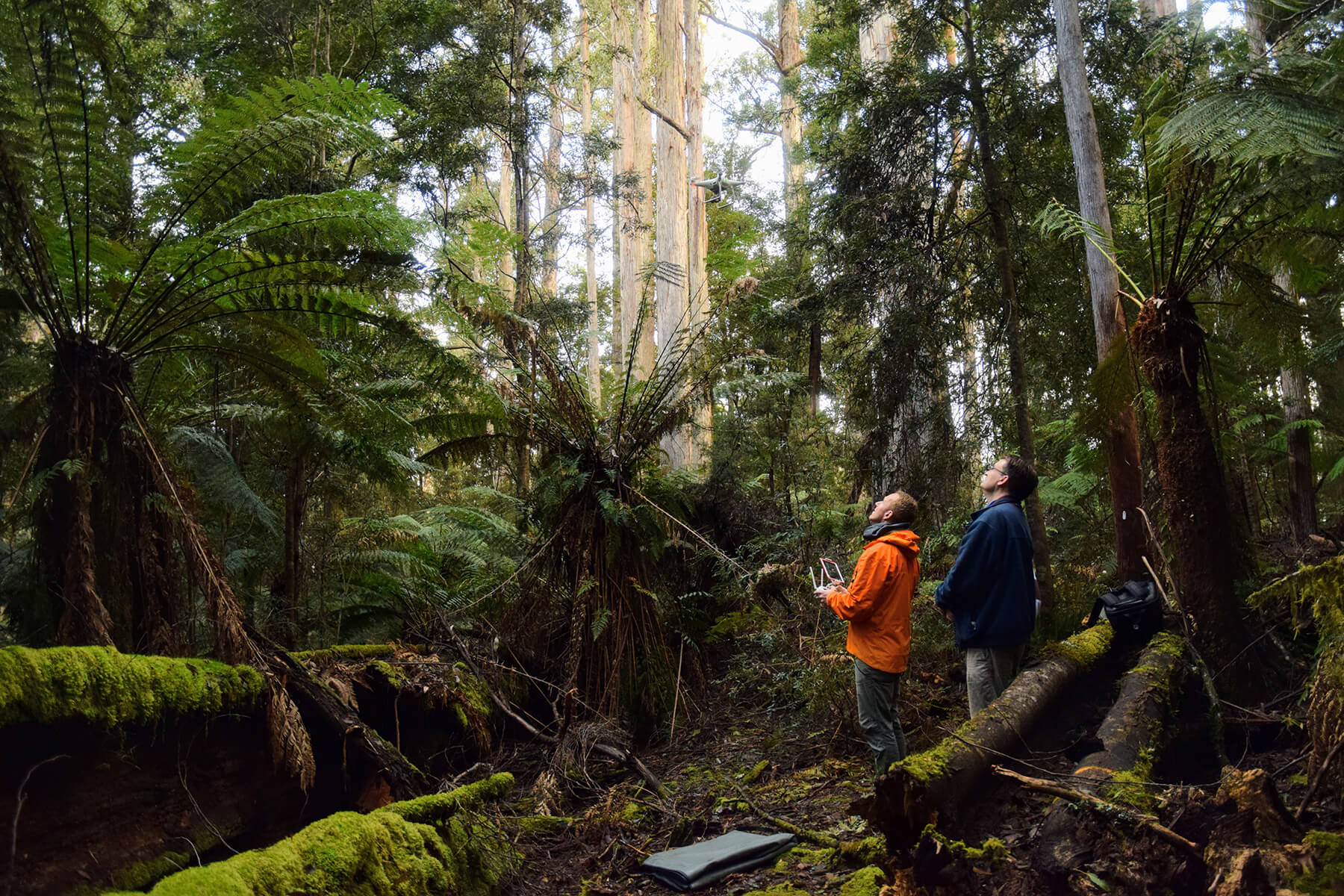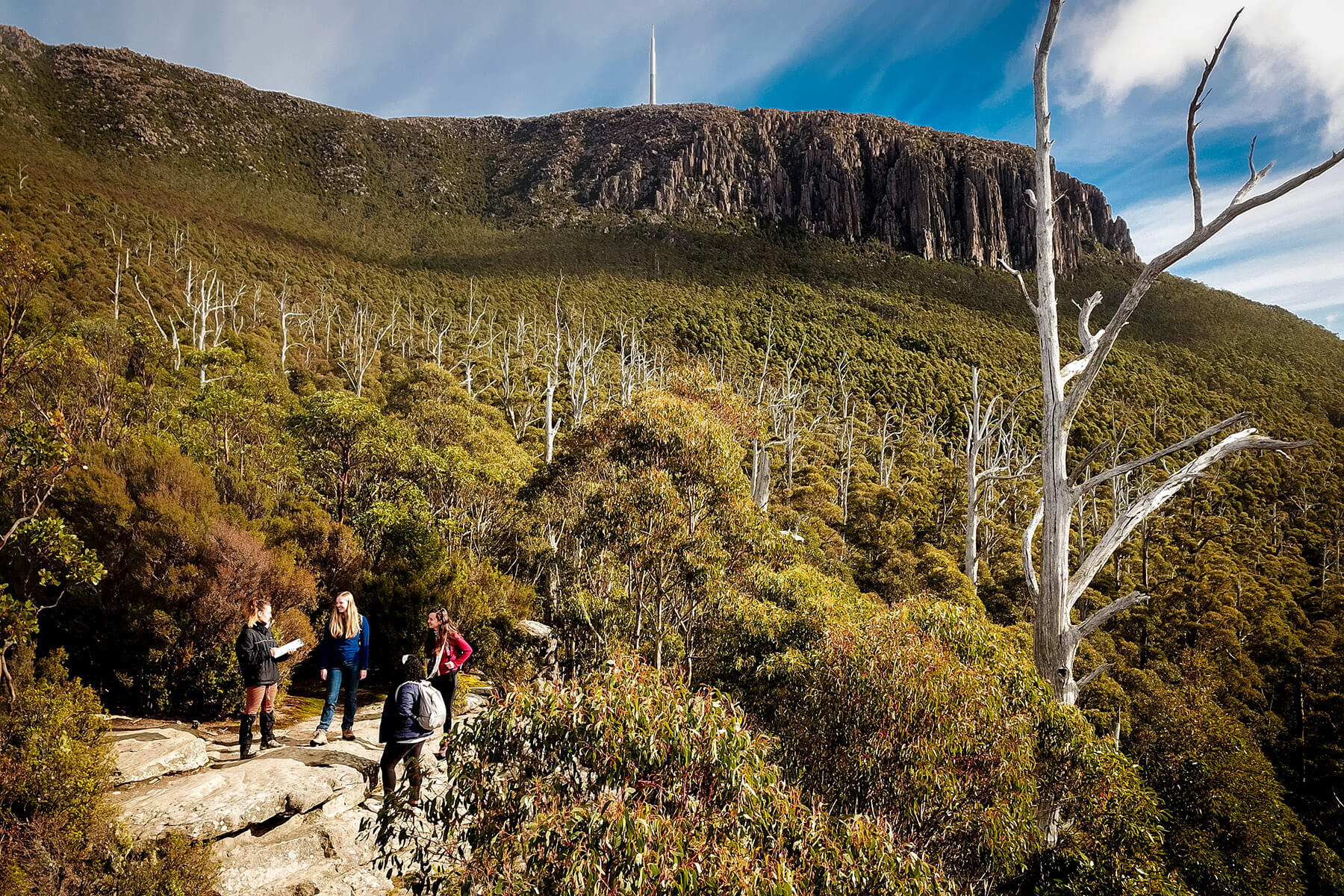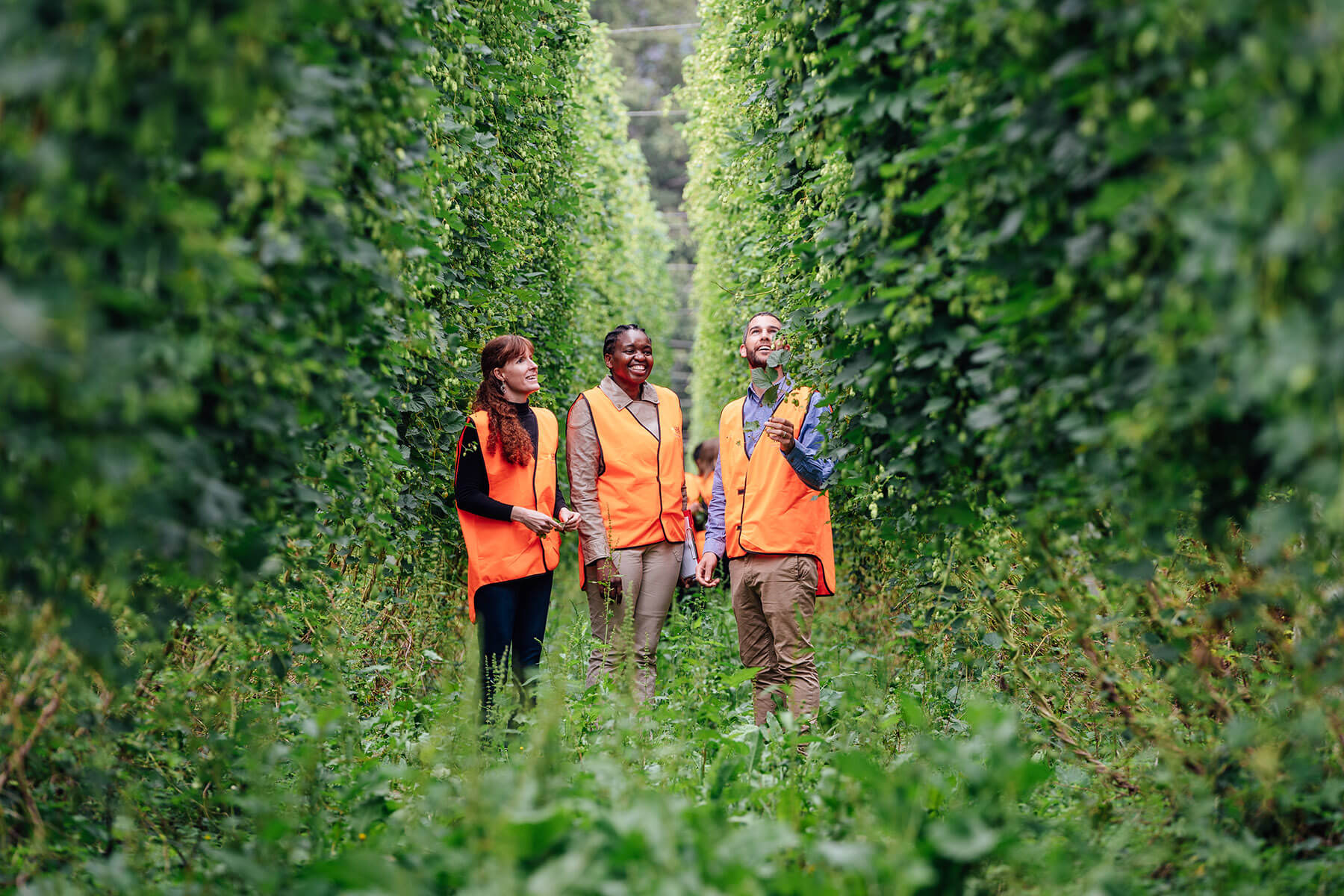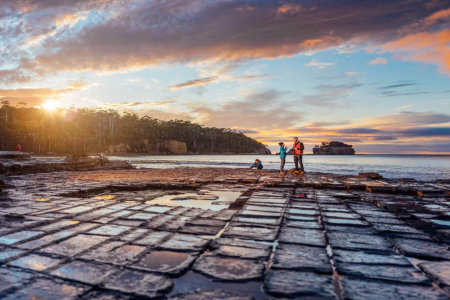MengYong Lim moved from Malaysia to the beautiful shores of Tasmania to study the Bachelor of Agricultural Science at the University of Tasmania (UTAS) — and he’s never regretted it.
From visiting farms to orchards, on to an aquaculture business, Lim gets to experience it all.
“Since I wanted to study agricultural science,” Lim says, “it made more sense to come to Tasmania because you get to go to so many places. It’s different to the other big cities. You get to experience more.”
Bachelor of Global Logistics and Maritime Management student Ryan Moreton did not have to travel as far. Thanks to the University’s Australian Maritime College, he was able to stay home with his family while “studying for a degree that opens doors to the world.”
The University of Tasmania is ranked number one globally in the latest International Association of Maritime Universities benchmarks. It’s Australia’s national institute for maritime education, training and research. The University offers undergraduate courses specialising in, but not limited to: Business and Law; Creative Arts and Design; Earth, Sea, Antarctic and Environment, Education, Humanities and Social Sciences; Health and Medicine and Science, Technology and Engineering.
Plus, the University’s new customisable double degrees let you get two qualifications in a much less time.
The best part? In Tasmania, the whole island is your campus. Thanks to close industry connections, all the University’s programmes offer real-life, hands-on learning. Natural and social sciences students can draw inspiration from their surroundings. And in the arts, students will be at the centre of a creative revolution.

Source: University of Tasmania
For graduate Max Weidenbach – studying a Bachelor of Agricultural Science, and now working with Tasmania’s largest private forest management company Forico – these experiences did not just get him out of the classroom. He gets to be in one of the world’s most incredible places.
Although born in Tasmania, Weidenbach moved to the Northern Territory after finishing college.
“I’m so glad that I came back to Tasmania,” he says. “It’s a great place to study agricultural science. There are heaps of different career paths and so many different sectors.”
Today, he’s part of Forico’s Tasmanian North-East team. His role is split between plantation management and research. For him, every day is different.
“In the morning, I might be going out to sites that we’ve got operations on, meeting contractors, solving issues, or following up to make sure all the forestry practice plans are on track.”
The University offers many career-boosting opportunities. Alumnus Hannah Cummins will tell you that. The highlights of her time here include attending the Australian Women in Agriculture Conference, as well as the National Merino Challenge, where she learned about the wool and sheep industry.
She says: “These opportunities are invaluable and add practical, industry-relevant skills to your studies.”
Her dream job was to be an agronomist, something she achieved studying in Tasmania — but with an added advantage. At the University of Tasmania, she could earn the know-how and experience for her chosen career, without limiting her options.

Source: University of Tasmania
Cummins was given every opportunity explore different career paths.
“You won’t know if you love and want to work in an industry until you try it out,” she says. “For me, I did end up as an agronomist, but throughout my degree I took every opportunity to explore different options.”
Outstanding courses in an extraordinary location
The Australian Maritime College (AMC) is Australia’s recognised national institute for maritime education, training and research. Its campus is where the Royal Australian Navy undertakes training. At the Defence Connect Australian Defence Industry Awards last year, the college was named Academic Institution of the Year. Its commercial arm, AMC Search, won the Regional SME of the Year.
AMC Principal Michael Van Balen, AO says: “We’re very proud of the strong partnership we have built with defence and related industries over a long period of time”
If captaining a vessel, safeguarding marine environments, designing advanced ocean engineering structures, or keeping the world’s goods moving are your career goals, then AMC has the qualifications to make it happen.
It offers coursework programmes at graduate certificate, graduate diploma, or master’s level, as well as higher degrees by research programmes. The following study areas are available: Maritime Engineering and Hydrodynamics, Global Logistics and Maritime Management, and Ocean Seafaring.
The facilities are some of the most cutting-edge in the Southern Hemisphere. They include ship simulators, a towing tank, model test basin, flow tank, and unique cavitation laboratory. These features drew Zahara Lemon to the AMC.

Source: University of Tasmania
She saw that the Bachelor of Global Logistics and Maritime Management had everything she was looking for in one specialist course. The course combines core business principles with learning that is specific to maritime management and global logistics.
“I heard through word-of-mouth that AMC was holding a logistics and management course,” she says. “I attended a few information sessions and decided that it was perfect for my career prospects and signed up soon after.”
You also get plenty of career support. The Maritime and Logistics Management Industry Forum gives students the chance to speak with senior managers from Tasmanian and interstate companies including TasPorts, Agility Logistics, Toll Group, Australian National Lines (ANL), and Patrick Stevedore.
Aspiring engineer Curtis Graham has also been able to work with advanced maritime engineering and hydrodynamic facilities. These include the AMC’s Model Test Basin and Towing Tank. The Ocean Engineering student is impressed with all the hands-on learning opportunities, as well as the lecturers and teaching staff. To him, they’re second to none.
“Not only are they incredibly knowledgeable, they are super enthusiastic and really engaging,” Curtis says. “Being able to attend lectures, through Engineers Australia and the Royal Institute of Naval Architecture, gives you the ability to form connections that will definitely be useful through my career.”
Follow University of Tasmania on Facebook, Twitter, Instagram and YouTube













